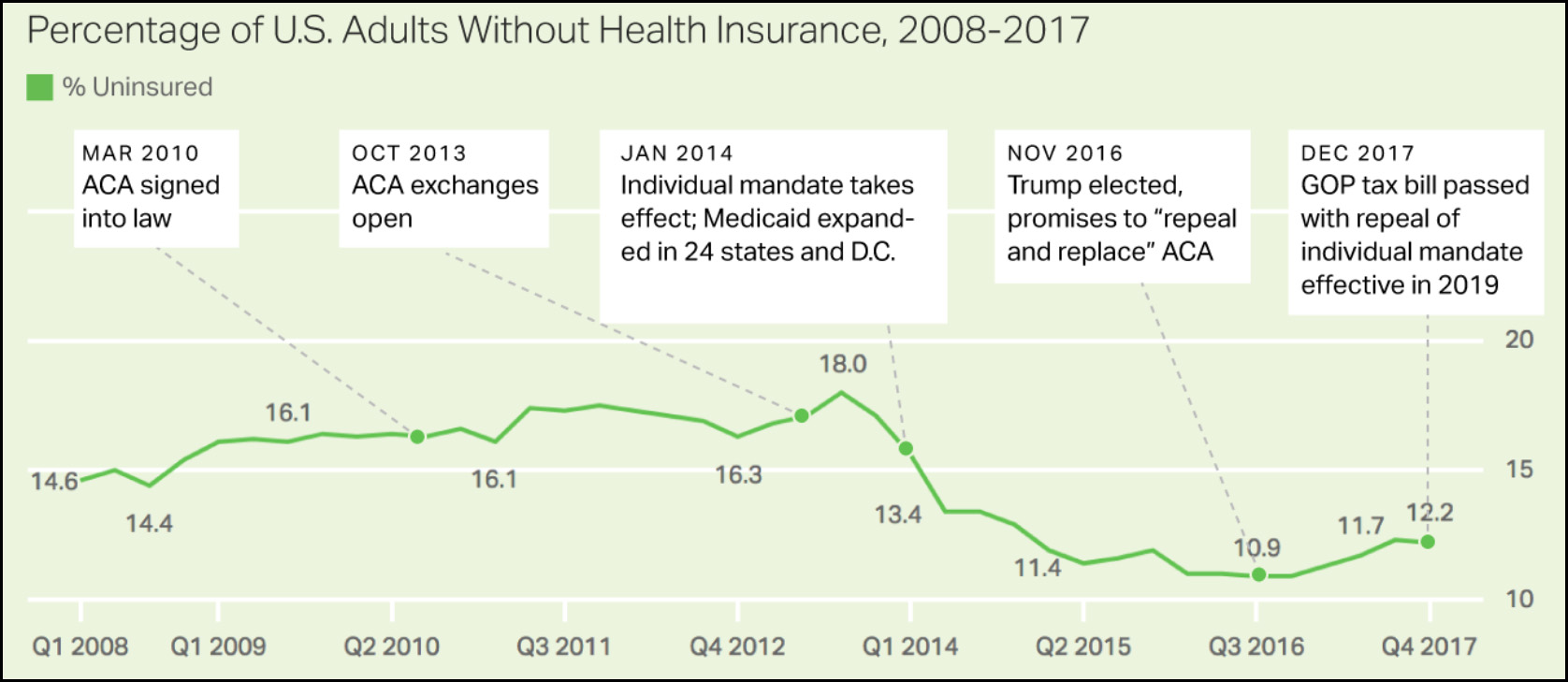How’s Obamacare doing? CMS reports that it tanked in 2017 thanks to declines in the number of people willing to buy unsubsidized health insurance. But let’s examine this more closely. First, Andrew Sprung notes that it’s not really Obamacare itself that’s been affected:
One peculiarity: all of the drop in unsubsidized enrollment was apparently off-exchange. In fact, unsubsidized enrollment on HealthCare.gov and the state exchanges rose slightly in 2017, from 2.1 million to 2.2 million (though the “unknown” subsidy status of 83,516 enrollees all but closes the gap).
So the decline in 2017 was entirely outside Obamacare, not within the exchanges themselves. Second, CMS also provides some 2018 numbers, and they show that although initial Obamacare enrollments were down this year, the number of people who are actually paying for coverage is up:
As of March 15, 2018, 10.6 million individuals had effectuated coverage through the Federal and State-Based Exchanges for February 2018, meaning that they selected a plan, paid their first month’s premium, if applicable, and had coverage in February 2018….The number of individuals with effectuated coverage for February 2018 is approximately 3 percent higher than February 2017 effectuated enrollment of 10.3 million individuals, as of March 15, 2017.
The truth is that we don’t know yet what’s happening. Donald Trump’s sabotage efforts led to higher prices, and it makes sense that this would mostly affect people who don’t qualify for subsidies. After all, they’re the only ones who were hit with an actual price increase. Poorer people, who qualify for subsidies, pay a percentage of their income that stays the same no matter what the actual monthly premium is.
That said, with the unemployment rate continuing to drop, it’s possible that some of the decline in the off-exchange market was due to people getting jobs and switching to employer insurance. We won’t know for sure about this until we get survey results for the number of uninsured. The CDC’s numbers, which I consider the most reliable, are still months away, but we should get an early read from Gallup pretty soon. As a baseline, here’s the Gallup report up through the end of 2017:

If the 2018 number stays around 12.2 percent, it means the rising off-exchange premiums probably led to changes in health insurance, not declines. If it goes up more than a few tenths of a percent, it means the higher premiums are having a real effect on the number of people who have health insurance. We’ll see.


















